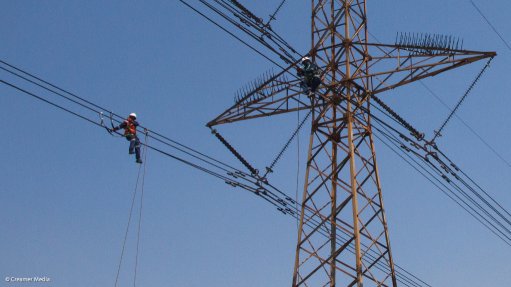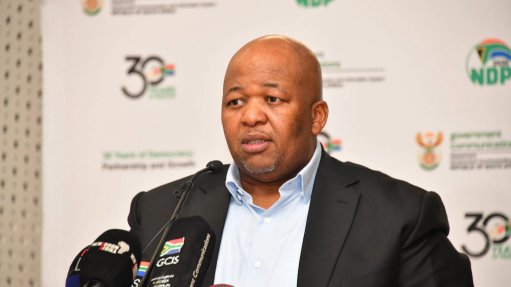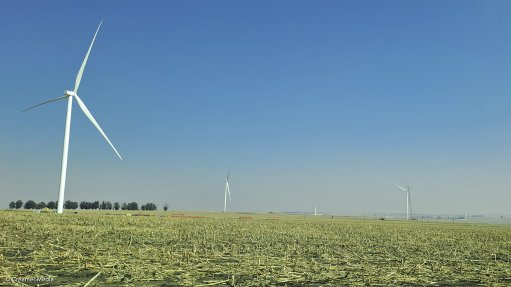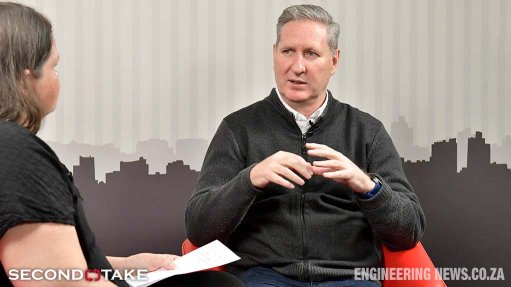Just Share says analysis shows Absa intends to continue financing fossil fuel projects
Shareholder activist organisation Just Share has analysed financial services firm Absa’s recently published Coal Financing Standard and Oil and Gas Financing Standard, as well as Absa’s 2022 disclosures partially aligned with the recommendations of the Task Force on Climate-related Financial Disclosures (2021 TCFD Report), and says “Absa’s intention is quite clearly to continue to fund coal, oil and gas projects.”
The bank’s oil and gas standard states that “Absa will strive to achieve a balanced energy portfolio funding diversification mix between renewable energy, oil, natural gas, biomass, hydrogen and coal”, Just Share climate change engagement director Robyn Hugo says.
Absa is the last of the “big five” banks to publish fossil fuel policies covering oil and gas and continues to lag in its understanding of and engagement with climate risk and the imperative to transition to a low-carbon, resilient and sustainable economy, the organisation states.
“Absa’s May 2022 standards do not advance the bank’s position on climate change in any significant way.
“The standards contain only one new exclusion, which is a long-overdue exclusion of financing for new coal-fired power, and do not contain any meaningful targets for the reduction of Absa’s financed emissions, namely the emissions that banks and investors finance through their loans and investments, or the emissions associated with the projects and entities to which they lend,” Hugo says.
“Absa’s policies reveal that the bank has a poor grasp of why it is crucial for financial institutions to have robust policies and stringent exclusions for financing fossil fuels in a world facing an urgent and escalating climate crisis,” she adds.
LACK OF MEANINGFUL FOSSIL FUEL-RELATED TARGETS
In its 2021 TCFD report, Absa sets a “net-zero carbon emissions by 2050” target, but even this high-level ambition is not included in its financing policies, Just Share points out.
This goal should be a minimum long-term ambition in an overarching fossil fuel policy, together with interim targets for achieving the long-term ambition across the bank’s financed emissions, Hugo says.
The 2021 TCFD report’s financing targets for the oil and coal sectors purport to reduce the bank’s exposure progressively from 2024 (oil) and 2025 (coal) onwards, although expressed as a reducing percentage of group loans, rather than aimed at reducing absolute emissions.
However, Absa not only plans to increase its exposure to fossil fuels, but still envisages funding these sectors up to and including 2050. For the gas sector, the bank’s position is even weaker, with gas financing increasing until 2030 and only declining thereafter, but still not to zero by 2050, she points out.
“While an intention to decrease exposure to the fossil fuel sector over time is important, the bank needs to target 0% of its lending to the fossil fuel sector as soon as possible, and at least on a timeline compatible with the Paris Agreement goals,” she says.
COAL FINANCING STANDARD
Absa’s updated Coal Financing Standard still does not rule out financing for new coal projects, including coal mining, industrial and metallurgical use of coal, new coal-fired industrial boilers or furnaces, or existing coal-fired electricity generation power plants, Hugo notes.
It is inconsistent for Absa to claim to be aligned with the goals of the Paris Agreement while still supporting new coal projects, including new greenfield coal mining projects, she says.
OIL AND GAS FINANCING STANDARD
Further, in its first policy relating to oil and gas, Absa is enthusiastic about what it regards as the opportunities presented by Africa’s “significant oil and gas reserves", emphasising the so-called strategic importance of oil and gas for economic growth in Africa, and for itself as a pan-African bank.
“It does so without a single reference to the significant contribution of fossil gas to global emissions, the associated risks of developing economies based on gas, or the growing body of evidence that developing fossil fuels, particularly oil and gas assets, is neither necessary nor desirable for Africa to improve its energy security and alleviate poverty,” she adds.
Absa has based its approach to oil and gas purely on what it sees as “continued demand for natural gas and oil”. It contains no relevant exclusions when it comes to potential services and financing of oil and gas: the only exclusions relate either to activities that are immaterial to the regions in which Absa operates, or that account for commercial risk, but have nothing to do with the additional climate risks and/or impacts of new oil and gas projects on global emissions, Hugo points out.
URGENT ACTION REQUIRED THIS DECADE
In August, the United Nations’ Intergovernmental Panel on Climate Change (IPCC) published the first part of its sixth assessment report, summarising the “physical science basis” for climate change, Hugo notes.
Relying on more than 14 000 peer-reviewed studies, the IPCC report provides new estimates of the chances of crossing the global warming level of 1.5 °C “more likely than not” by 2040, even in low emission scenarios, and finds that unless there are immediate, rapid and large-scale reductions in greenhouse-gas (GHG) emissions, even limiting warming to 2°C will be beyond reach, she emphasises.
The IPCC re-emphasises the findings of its '2018 Special Report on Global Warming of 1.5 °C' that GHG emissions must be reduced by almost half by 2030 to avoid the most severe impacts of climate change.
Absa’s plans to continue funding fossil fuels up to and including 2050, even if at a reduced amount, run contrary to climate science. Absa has not engaged at all with the overwhelming scientific consensus that action taken this decade will determine whether we are able to achieve the goals of the Paris Agreement, she says.
Comments
Press Office
Announcements
What's On
Subscribe to improve your user experience...
Option 1 (equivalent of R125 a month):
Receive a weekly copy of Creamer Media's Engineering News & Mining Weekly magazine
(print copy for those in South Africa and e-magazine for those outside of South Africa)
Receive daily email newsletters
Access to full search results
Access archive of magazine back copies
Access to Projects in Progress
Access to ONE Research Report of your choice in PDF format
Option 2 (equivalent of R375 a month):
All benefits from Option 1
PLUS
Access to Creamer Media's Research Channel Africa for ALL Research Reports, in PDF format, on various industrial and mining sectors
including Electricity; Water; Energy Transition; Hydrogen; Roads, Rail and Ports; Coal; Gold; Platinum; Battery Metals; etc.
Already a subscriber?
Forgotten your password?
Receive weekly copy of Creamer Media's Engineering News & Mining Weekly magazine (print copy for those in South Africa and e-magazine for those outside of South Africa)
➕
Recieve daily email newsletters
➕
Access to full search results
➕
Access archive of magazine back copies
➕
Access to Projects in Progress
➕
Access to ONE Research Report of your choice in PDF format
RESEARCH CHANNEL AFRICA
R4500 (equivalent of R375 a month)
SUBSCRIBEAll benefits from Option 1
➕
Access to Creamer Media's Research Channel Africa for ALL Research Reports on various industrial and mining sectors, in PDF format, including on:
Electricity
➕
Water
➕
Energy Transition
➕
Hydrogen
➕
Roads, Rail and Ports
➕
Coal
➕
Gold
➕
Platinum
➕
Battery Metals
➕
etc.
Receive all benefits from Option 1 or Option 2 delivered to numerous people at your company
➕
Multiple User names and Passwords for simultaneous log-ins
➕
Intranet integration access to all in your organisation


















